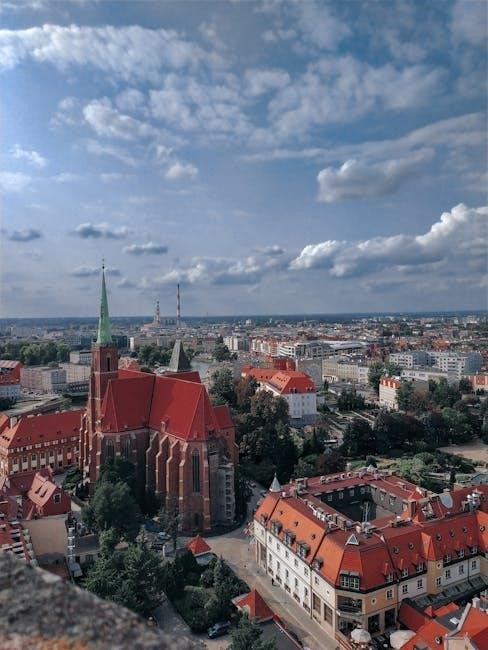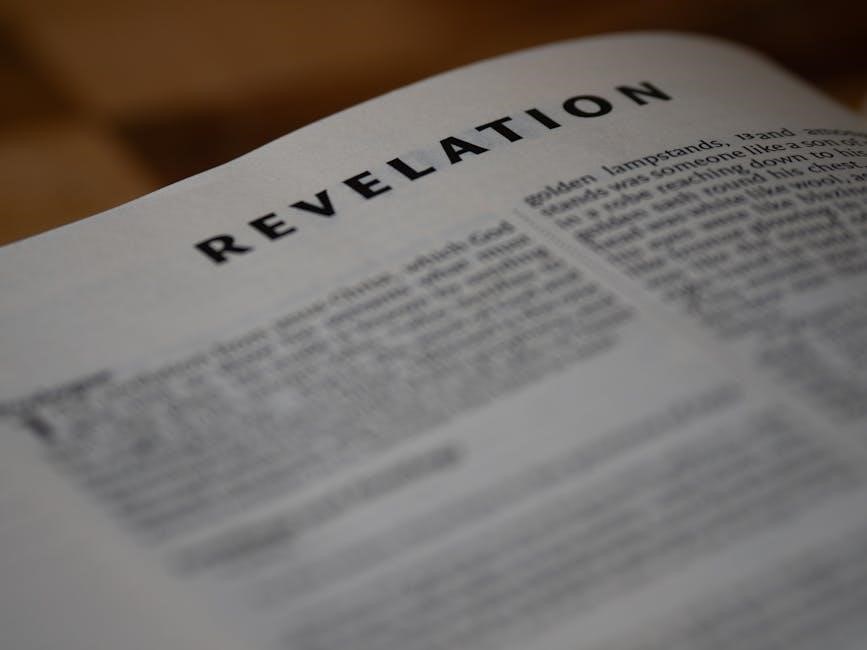
grendel john gardner pdf
John Gardner’s 1971 novel Grendel reimagines the Beowulf epic from the monster’s perspective, exploring existential themes. The Grendel PDF study guide provides summaries, analysis, and insights for students.

Background and Context
John Gardner’s Grendel is a reinterpretation of the Anglo-Saxon epic poem Beowulf, offering a fresh perspective by narrating the story through the monster Grendel. Set in the 6th century, the novel explores themes of existentialism and nihilism, challenging traditional heroic narratives. Gardner’s work is deeply rooted in philosophical inquiry, questioning the nature of meaning and humanity’s place in an indifferent universe. The novel’s structure and prose reflect its literary depth, making it a significant work in contemporary literature. Study guides and PDF resources for Grendel provide valuable insights, aiding readers in understanding its complex themes and historical context. These materials are particularly useful for students analyzing the novel’s cultural and philosophical dimensions.
Historical and Cultural Context
John Gardner’s Grendel is deeply rooted in the historical and cultural legacy of the Anglo-Saxon epic Beowulf, which dates back to the 6th century. The novel reimagines the story of Grendel, a monster from the original poem, offering a fresh perspective on the conflict between humanity and the “other.” Gardner’s work reflects the philosophical and cultural shifts of the 20th century, blending existential and nihilistic themes with medieval lore. The historical context of the novel is enriched by its exploration of human nature, society, and the search for meaning in a chaotic world. PDF study guides for Grendel often highlight these cultural and historical dimensions, providing readers with a deeper understanding of the novel’s roots and its relevance to modern audiences.
Themes and Philosophical Elements
Gardner’s Grendel explores existentialism, nihilism, and anarchism, questioning meaning, morality, and societal structures. The novel delves into the search for purpose and the critique of human norms through Grendel’s journey.
Existentialism
John Gardner’s Grendel deeply explores existentialism through the monster’s introspective journey. Grendel, as an antihero, grapples with the meaninglessness of existence, echoing existentialist philosophy. His isolation and self-awareness highlight the absurdity of life, as he seeks purpose in a seemingly indifferent world. The novel portrays Grendel’s existential crisis, where he questions the nature of reality and his place within it. His interactions, particularly with the dragon, symbolize the search for meaning and the inevitability of ambiguity. Gardner’s narrative underscores existential themes of individual freedom, choice, and the struggle to find significance in an inherently chaotic universe. Through Grendel’s voice, the novel challenges readers to confront the complexities of existence and the human condition.
Nihilism
John Gardner’s Grendel explores nihilism through the monster’s belief in life’s inherent meaninglessness. Grendel rejects traditional values, perceiving human culture as arbitrary and hollow. His destructive actions symbolize a rejection of societal norms, reflecting a nihilistic worldview. The novel portrays Grendel as an embodiment of cosmic indifference, questioning the purpose of existence. His internal monologue reveals a deep existential despair, as he struggles to find meaning in a chaotic world. Gardner uses Grendel’s narrative to critique the idea of objective truth, highlighting the futility of human endeavors. The novel’s nihilistic undertones challenge readers to confront the possibility of an indifferent universe, mirroring Grendel’s own existential crisis. This philosophical exploration adds depth to the retelling of the Beowulf legend, making Grendel a profound study of nihilistic themes.
Anarchism
In Grendel, anarchism is reflected through the monster’s rejection of societal structures and authority. Grendel’s disdain for Hrothgar’s rule and organized human society aligns with anarchist principles, as he seeks to dismantle hierarchical systems. His actions, though destructive, symbolize a resistance to centralized power and the rigid norms imposed by human culture. Grendel’s narrative challenges the notion of a cohesive, orderly world, instead embracing chaos and individual freedom. This philosophical stance critiques the idea of organized governance, mirroring anarchist ideals of self-determination and autonomy. Gardner’s portrayal of Grendel as a force of disruption highlights the tension between individuality and societal expectations, making anarchism a significant thematic element in the novel. The monster’s solitary existence further underscores his rejection of collective rule, embodying anarchist values of nonconformity and resistance.

Character Analysis
Grendel, as an antihero, embodies complexity, blending monstrosity with philosophical depth. His existential quest for meaning and identity drives the narrative, revealing a deeply emotional and contemplative character.
Grendel as Antihero
Grendel, as the antihero, challenges traditional heroic norms, seeking meaning in an indifferent world. His existential journey reveals a complex, philosophical character, blending monstrosity with deep emotional and intellectual depth. Unlike typical villains, Grendel is capable of introspection, questioning the nature of existence and morality. His narrative voice, though unreliable, offers a unique perspective, humanizing him despite his monstrous actions. Gardner portrays Grendel as both a symbol of isolation and a figure grappling with the absurdity of life, making him a compelling and sympathetic character. This duality underscores his role as an antihero, provoking readers to reconsider their perceptions of good and evil. Grendel’s story becomes a profound exploration of identity and purpose.
The Unreliable Narrator
Grendel’s narrative is marked by unreliability, as his perspective is deeply subjective and influenced by his existential struggles. His interpretations of events often reflect his biases, creating a distorted view of reality. This unreliability challenges readers to question the accuracy of his accounts, as his philosophical musings and emotional turmoil frequently cloud his objectivity. Grendel’s tendency to manipulate or omit details to justify his actions further complicates his credibility. The novel’s structure, with its nonlinear storytelling and internal monologues, emphasizes his unstable narrative voice. This unreliability not only underscores Grendel’s complexity as a character but also encourages readers to critically analyze his portrayal of the world and his place within it. His narration serves as a lens through which the themes of truth and perception are explored.
Narrative Style
Gardner’s Grendel employs a non-linear, introspective narrative, blending philosophical musings with poetic prose. The novel’s fragmented structure reflects Grendel’s existential struggles and internal contradictions, creating a rich, layered storytelling experience.
Structure and Technique
John Gardner’s Grendel features a non-linear narrative structure, with the story skipping back in time to explore the origins of the conflict and Grendel’s personal history. The novel is divided into twelve chapters, each reflecting a different phase of Grendel’s existential journey. Gardner employs introspection and poetic prose to delve into Grendel’s mind, creating a deeply philosophical and layered narrative. The use of fragmented storytelling mirrors Grendel’s internal turmoil, emphasizing his struggle to find meaning in a seemingly meaningless world. This technique allows readers to connect with Grendel’s emotional and intellectual evolution, transforming him from a one-dimensional monster into a complex, relatable character.

Comparative Analysis with Beowulf
John Gardner’s Grendel offers a radical reinterpretation of the Beowulf epic, shifting the narrative from the heroic tale of a monster-slaying warrior to the introspective journey of the monster himself. In Beowulf, Grendel is depicted as a one-dimensional evil force, while Gardner humanizes him, presenting a complex, philosophical being grappling with existential questions. This shift in perspective challenges the traditional hero-villain dichotomy, inviting readers to empathize with Grendel’s isolation and search for meaning. The novel critiques the simplistic morality of the original epic, introducing themes of nihilism and anarchism that contrast sharply with Beowulf’s celebration of heroism. By reimagining the story from Grendel’s viewpoint, Gardner provides a fresh, thought-provoking analysis of the human condition.

Symbolism
Grendel symbolizes existential struggle and isolation, while darkness and light represent chaos and order. These elements enrich the novel’s exploration of meaning and humanity’s complexities.
Symbolism Elements
In Grendel, water symbolizes transformation and ambiguity, reflecting Grendel’s existential confusion. The mead-hall Herot represents human community and order, contrasting with Grendel’s isolation. Light and darkness denote moral duality, while Grendel’s mother embodies primal, unmanageable nature. The dragon, a hoarder of knowledge, signifies the futility of seeking ultimate truth. These symbolic elements enrich the novel’s exploration of meaning and chaos, highlighting Grendel’s internal struggle to find purpose in an indifferent world. The interplay of these symbols underscores Gardner’s philosophical inquiry into existence, morality, and humanity’s quest for understanding.
Reception and Impact
John Gardner’s Grendel has had a profound impact on literary studies, offering a fresh, philosophical perspective on the classic Beowulf tale. Its exploration of existentialism and nihilism has sparked significant academic discussion. The novel’s unique narrative voice and moral ambiguity have made it a popular subject for analysis in educational settings. PDF study guides and resources have been developed to aid students in understanding the novel’s complex themes. These materials highlight key elements such as symbolism, character development, and philosophical undertones. The availability of these resources underscores the novel’s enduring relevance in literature classrooms. Grendel continues to be celebrated for its thought-provoking commentary on human existence and its challenge to traditional heroic narratives.

Study Guides and Resources
PDF study guides for Grendel offer in-depth analysis, summaries, and insights. These resources aid students in understanding themes, characters, and philosophical elements, enhancing their study experience.

Importance of Study Guides
Study guides play a crucial role in helping readers navigate complex texts like Grendel. They provide summaries, character analyses, and thematic insights, making the novel more accessible. These resources are especially valuable for students, offering a structured approach to understanding Gardner’s philosophical exploration of existentialism, nihilism, and anarchism. By breaking down key motifs and symbolism, study guides enable deeper engagement with Grendel’s existential struggles and moral dilemmas. Additionally, they often include quiz questions and essay prompts, fostering critical thinking and analysis. The availability of PDF study guides ensures that learners can easily access these tools, enhancing their comprehension and appreciation of the novel’s rich intellectual and literary layers.
PDF Availability
PDF versions of John Gardner’s Grendel and its study guides are widely available online, offering convenient access to the novel and its analysis. These resources are often found on educational platforms, e-book retailers, and academic databases. The PDF format allows readers to download and access the text offline, making it ideal for study purposes. Many study guides, such as those from SparkNotes, are also available in PDF, providing summaries, character analyses, and thematic insights. This accessibility ensures that students and readers can easily engage with Gardner’s exploration of existentialism, nihilism, and anarchism. The availability of these resources highlights the enduring relevance of Grendel in literary studies and its continued popularity among scholars and enthusiasts alike.
John Gardner’s Grendel offers a unique, philosophical retelling of the Beowulf story, exploring existentialism and nihilism through the monster’s perspective. The novel challenges traditional heroism, presenting Grendel as a complex antihero grappling with meaning in an indifferent world. Its 12-chapter structure mirrors the epic’s timeline, while its narrative depth invites readers to question morality and existence. The availability of Grendel in PDF, along with study guides, enhances accessibility for students and scholars, providing insights into Gardner’s exploration of human nature, isolation, and the search for purpose. This timeless work remains a pivotal text in literary studies, blending myth and philosophy to provoke thought and reflection.

